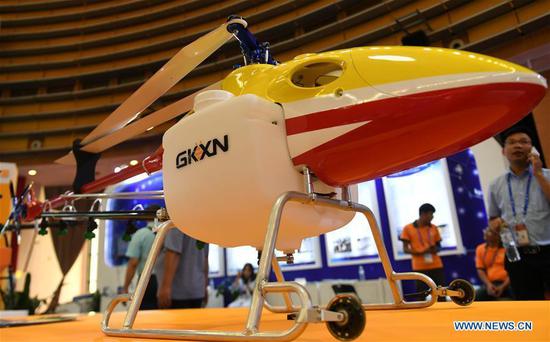Leading telecom carrier China Telecommunications Corp will conduct scale trials of 5G applications in 17 cities, as part of its broader push to gain a lead in the race to commercialize the fifth-generation communication technology.
Yang Jie, chairman of China Telecom, said on Thursday that the State-owned company will also set up 5G innovation centers to accelerate research and development of the superfast technology.
"Cross-industry cooperation is needed to speed up the maturity of 5G. China Telecom will step up efforts to push forward such collaboration," Yang said. "We aim to launch commercial 5G services in 2020."
At an expo jointly held by China Telecom and the US chip giant Qualcomm Inc in Guangzhou, capital of Guangdong province, the telecom carrier launched an action plan called Hello 5G to promote an ecosystem where companies from diverse sectors can join hands for growth.
The move came as the global telecom industry enters the final sprint toward commercialization of 5G, which is expected to be 10 times faster than 4G and will support superfast movie downloads, self-driving cars and streaming of virtual reality games.
China is expected to have 576 million 5G users by 2025, or more than 40 percent of global consumption, according to a report released by global consultancy EY.
The report, titled China is Poised to Win the 5G Race, estimated that the nation's 5G capital expenditure is expected to hit 1.5 trillion yuan ($219 billion) between 2019 and 2025. Proactive government support and industrial capital investments have helped shape a self-sustainable 5G environment in China, it added.
China Telecom's push into 5G came as its bigger rivals China Mobile and China Unicom are also scrambling to conduct relevant scale trials.
Wang Zhiqin, head of a 5G promotion group under the Ministry of Industry and Information Technology, said radio-frequency plans and licenses for 5G will come out "in time" to prepare for the upcoming construction of the super fast network.
On Thursday, China Telecom also announced that it has built more than 400,000 base stations for the narrow-band internet of things technologies.


















































